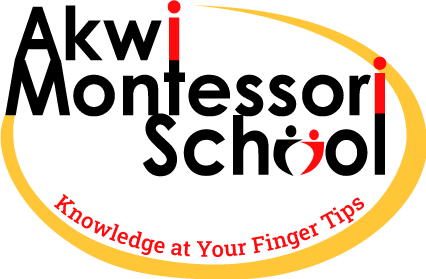
Who are we?
We are the first Montessori school in Cameroon.
We offer education to our students, teachers and parents.

Mission
Our mission is to provide a safe haven for all children who attend; a place where they are seen and their voices are heard, their opinions count, where they are allowed to think, explore, discover, play and learn.
We also seek to assist teachers and parents with additional support on how to support the children in a holistic manner to reach their full potential.
A home away from home.

Vision
Our vision is to be recognized as a school where children blossom because there is perfect harmony between home and school
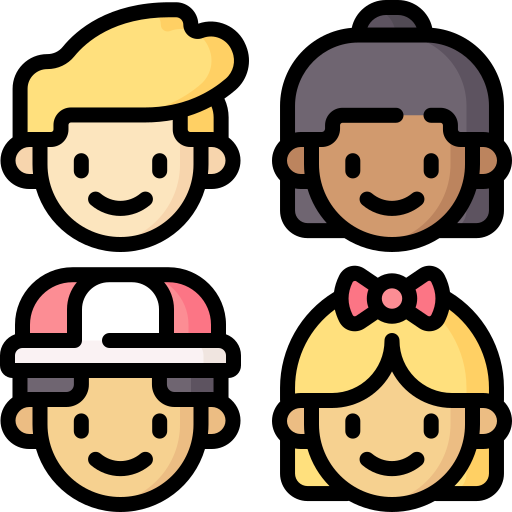
Why Akwi Montessori School?
A solid educational foundation
A safe, well prepared and stimulating environment.
What do we have to offer?
Toddlers (21/2 years)
It provides children of this age range with an opportunity to explore new relationships with friends and to interact with adults in a loving and nurturing environment.
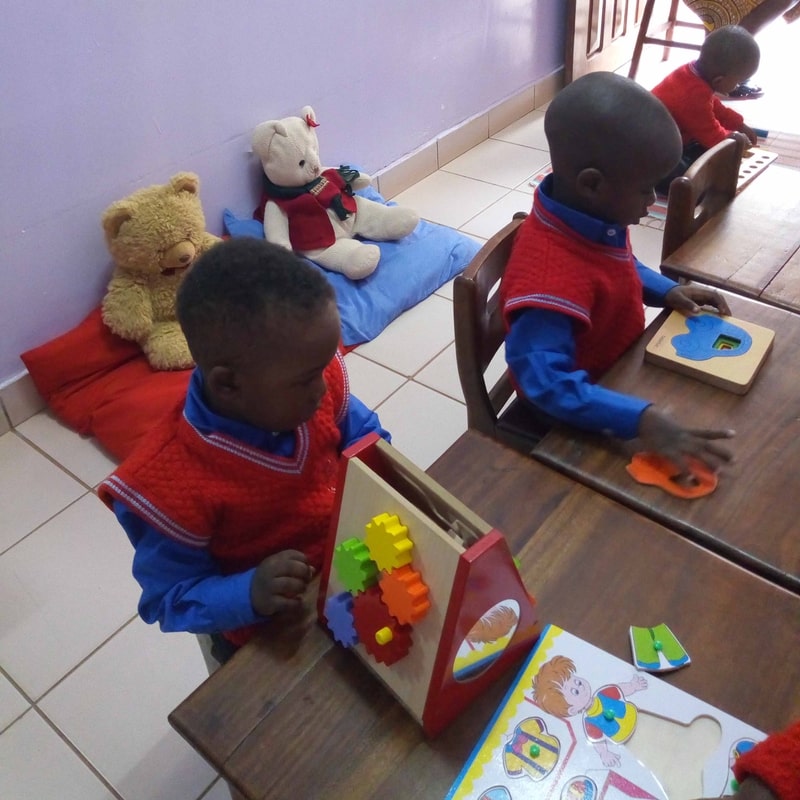
Nursery (3-6 years)
This area of the curriculum develops the mind (intellect) by refining (sharpening) the 5 senses.
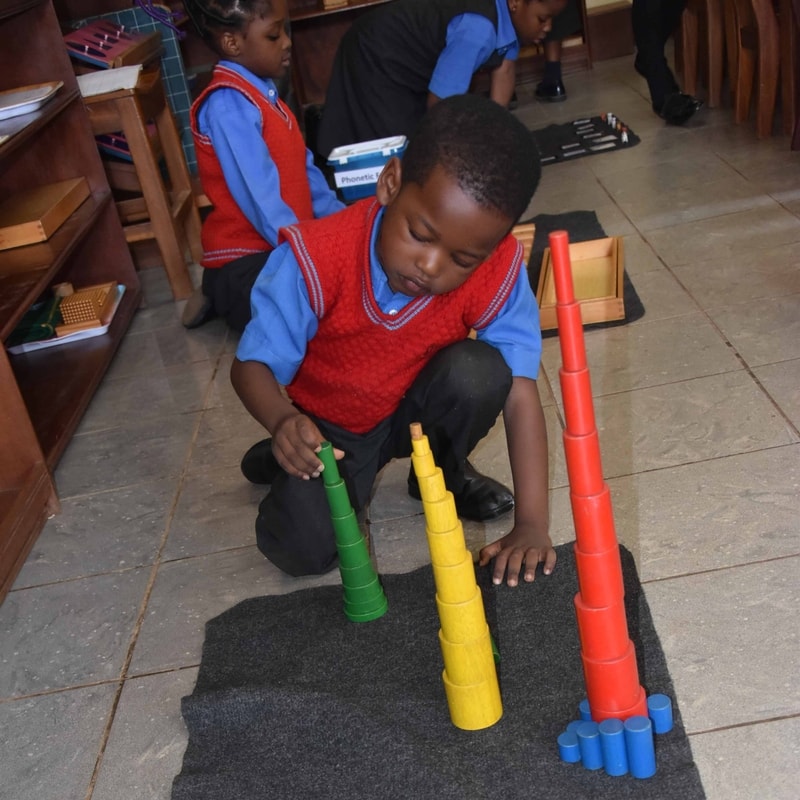
Montessori Elementary (6-12 years)
The elementary program builds on the early childhood experience gained in the Nursery.
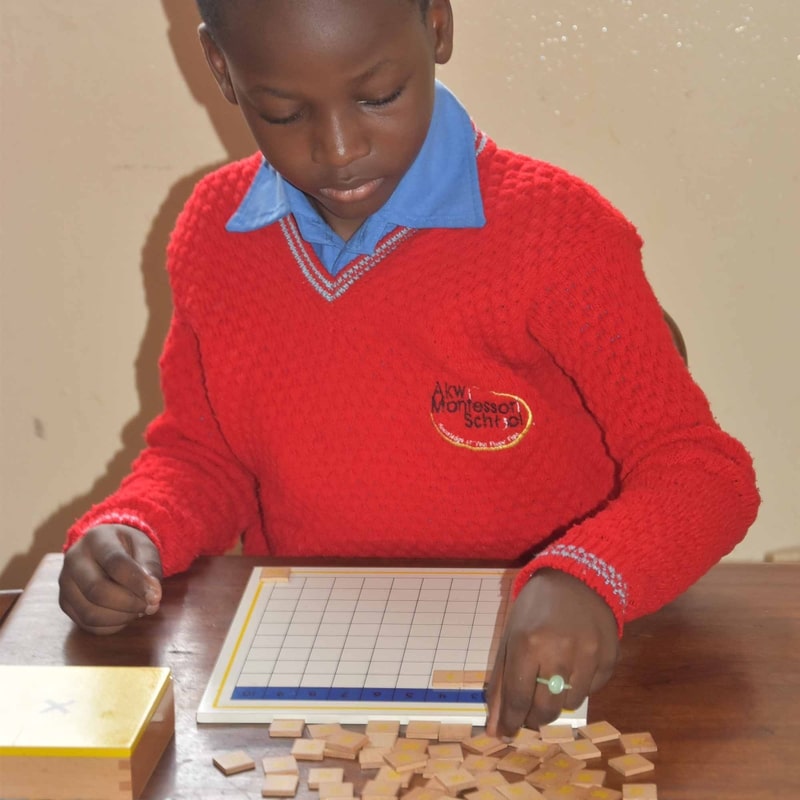
“Imagination does not become great until human beings, given the courage and the strength, use it to create”
~ Dr Maria Montessori
Montessori education is commonly associated with the pre-school age, as the Method was first developed in this group. Montessori education goes in cycles; birth to 18 months, 18 months to 3 years, 3 – 6 years, 6 – 9 years, 12 – 15 years etc. These cycles follow the planes of development.
At Akwi Montessori School, we admit toddlers at 2½years, the Montessori Nursery (3 – 6 years) and Elementary (6 to 12 years).
The differences will depend on the age group but two are likely to stand out whatever the age.
First it may be hard at first to spot the adults as they seek to be a discreet presence, spending much time closely observing the children rather than being the focus of the children’s attention. In Montessori education children choose what they learn and teach themselves using the materials designed for this purpose, in contrast to traditional education where the work is chosen by the adult and taught to the child.
Secondly the independence shown by the children whether it be a 3 year old selecting her own activity, working with and putting it away on her own, or an 8-year old planning his own research trip to the museum.
Dr Maria Montessori was born in Italy in 1870. She was the first woman to qualify in Italy as a doctor. Her early work centred on women’s rights and social reform and evolved to encompass a radically innovative approach to education.
In 1907 in St Lorenzo in Italy the first “Casa dei Bambini”, was opened by Dr Maria Montessori. This first Montessori school was for children from a working class background, these were certainly not children of the rich. Dr Montessori worked hard and made several important observations, the most striking was that children from deprived backgrounds could excel to their full potential in a nurturing environment.
AMS offers Montessori education at the Nursery and Primary (Elementary) levels. Children typically begin in the nursery and progress through Lower and Upper Elementary. Children may be admitted from traditional schools after an assessment to match them to the corresponding level.
